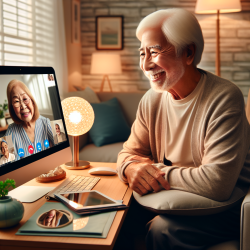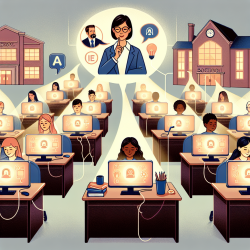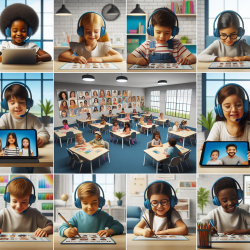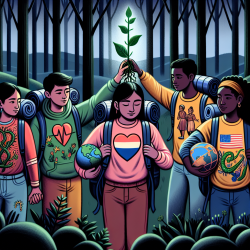Introduction
In the wake of the COVID-19 pandemic, the landscape of social communication has dramatically shifted. With physical distancing measures in place, video calls emerged as a crucial tool for maintaining connections, particularly for vulnerable populations such as older adults and individuals with dementia (IWD). A recent study published in the American Journal of Alzheimer's Disease and Other Dementias explores the impact of video call usage among these groups, offering insights that practitioners can leverage to improve outcomes for their clients.
Understanding the Research
The study, titled Video Call Usage in Older Adults With or Without Dementia Impacted by the COVID-19 Pandemic, surveyed healthy older adults and proxies for IWD to assess changes in video call usage before and after the pandemic. The findings revealed a significant increase in video call usage across both groups post-pandemic, highlighting the technology's role in mitigating social isolation.
Interestingly, the severity of dementia did not correlate with video call usage after the pandemic, suggesting that all individuals, regardless of cognitive decline, benefited from increased social interaction via video calls.
Practical Implications for Practitioners
For practitioners working with older adults and IWD, these findings underscore the importance of integrating video call technology into therapy and care plans. Here are some strategies to consider:
- Training and Support: Offer training sessions for clients and caregivers on using video call platforms. Simplified, step-by-step guides can enhance confidence and competence.
- Facilitating Social Engagement: Encourage regular video calls with family and friends to boost social interaction and improve quality of life.
- Addressing Barriers: Identify and mitigate common barriers to video call usage, such as technical difficulties or lack of access to devices.
Encouraging Further Research
While this study provides valuable insights, there is a need for further research to explore the long-term effects of video call usage on mental health and cognitive function in older adults and IWD. Practitioners are encouraged to contribute to this growing body of research by documenting outcomes and sharing findings with the broader community.
Conclusion
Video calls have become a vital tool for maintaining social connections in the era of COVID-19. By understanding and implementing the findings from recent research, practitioners can enhance the quality of life for older adults and individuals with dementia. As we continue to navigate the challenges of social distancing, the role of technology in fostering connections will remain crucial.
To read the original research paper, please follow this link: Video Call Usage in Older Adults With or Without Dementia Impacted by the COVID-19 Pandemic.










